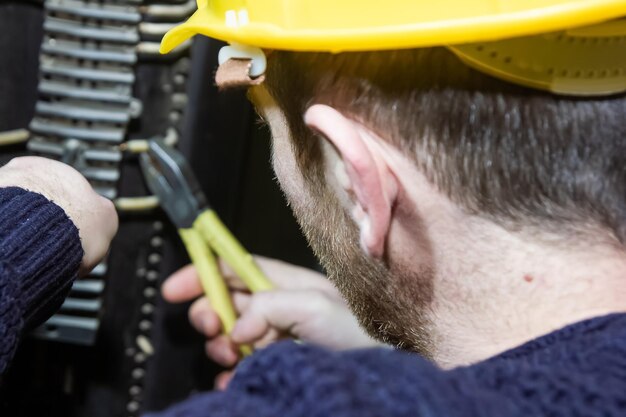Ready to Spark Your Career? Discover How to Become an Electrician in Florida
Dreaming of a career where you can light up your life and others'? Becoming an electrician in Florida can be a fulfilling path both personally and financially. Whether you're attracted to the stability the trade offers or the opportunity to work with your hands and mind, here's a comprehensive guide to getting started in the Sunshine State.
Understanding the Pathway
To build a successful career as an electrician, follow these essential steps that lay the groundwork for your future endeavors:
1. Educational Foundation
Before you can pursue a career in electrical work, a high school diploma or GED equivalent is typically required. Courses in mathematics, physics, and shop classes will provide a strong foundation. From there, attending a technical school can further nourish your skills. Consider enrolling in a vocational program that specializes in electrical training.
2. Enroll in an Apprenticeship Program
Arguably the most critical step, entering an apprenticeship program offers hands-on learning that is invaluable. In Florida, programs are often offered through various organizations, including:
- Independent Electrical Contractors (IEC)
- Associated Builders and Contractors (ABC)
- Joint Apprenticeship & Training Committees (JATC)
These apprenticeships combine classroom hours with practical experience under the supervision of a licensed electrician.
3. Gaining Work Experience
During your apprenticeship, you'll be required to accumulate around 8,000 hours (approximately four years) of practical work experience. This immersion into the field hones your skills and prepares you for more advanced roles.
4. Obtaining Your License
Once you've completed your apprenticeship, the next step is obtaining an electrician’s license. In Florida, you can choose between several types of licenses, such as:
- Registered Electrical Contractor
- Certified Electrical Contractor
- Journeyman Electrician
Each has its own criteria and exams, often focusing on the National Electrical Code (NEC).
Financial Assistance and Further Training
Starting your journey to become an electrician can be an investment, but several resources can ease the financial burden:
- Educational Grants and Scholarships: Seek out government-funded educational grants or scholarships specific to trade and technical schools.
- Government Aid Programs: Become familiar with aid programs like the Federal Pell Grant to further finance your education.
- Apprenticeship Subsidy Programs: Some employers or trade unions offer subsidies to cover costs associated with apprenticeships.
Beyond the Basics: Expanding Your Opportunities
As you gain experience and expertise, opportunities to specialize in certain areas of electrical work, such as residential, commercial, or industrial electrical systems, arise. Similar to upskilling, pursuing certifications in areas like solar energy systems or automated systems can open new doors. And remember, continuing education is crucial to keep your license current and knowledge up-to-date.
If you're worried about the financial aspects of advancing your training, explore debt relief options for educational loans, or consider credit card solutions that offer real financial flexibility.
Taking these steps will secure a dynamic, exciting career as an electrician in Florida. Illuminate your future one connection at a time!
Your Financial Support Toolkit:
- 🎓 Educational Grants: Federal Pell Grant, Trade-specific Scholarships
- 💡 Apprenticeship Subsidies: Offered by Employers, Trade Unions
- ⚡ Government Aid Programs: Workforce Innovation & Opportunity Act (WIOA)
- 🏦 Credit Solutions: Low-interest Credit Cards tailored for educational expenses
- 📈 Debt Relief: Student Loan Forgiveness Programs
Stay motivated and proactive in your journey to becoming a skilled electrician, equipped both with the knowledge to power up homes and businesses, and the financial strategies to do so smartly.

